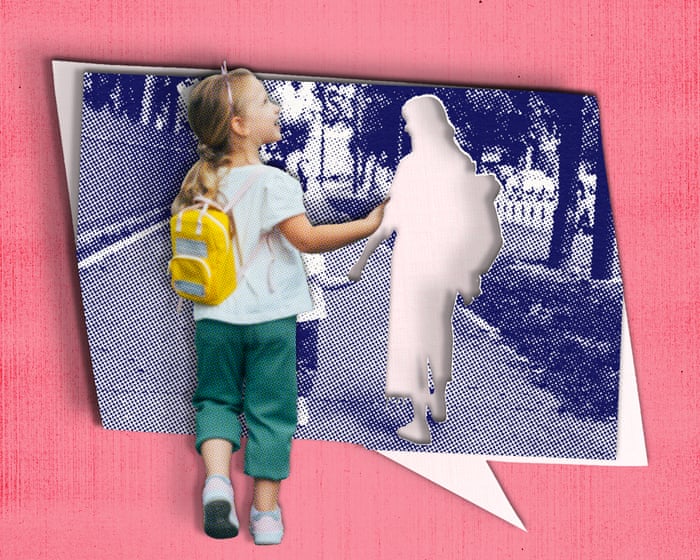Sometimes the most profound truths reveal themselves in the most ordinary moments. When I was six, I saw a character give birth in an army tent on the TV show MAS*H. I ran from the den to the kitchen and asked my mom, “Did you give birth to me in a tent like that?” I was eager to hear my origin story.
To my surprise, my mom rushed out of the room in tears. When she came back, she sat me down and told me something I think I’d always sensed. “Your Uncle Ana brought you home from the hospital to Mommy and Daddy,” she said. “You’re adopted, which means we chose you.”
I felt relieved to finally know, but seeing how upset my mom was, I decided never to bring it up again. Still, I never stopped wondering about the details. My parents and I had similar skin tones, but I didn’t really look like them. I was awkward, lanky, and bookish; they weren’t. Even though they loved and accepted me, I always felt like an outsider in my family and could never quite figure out why.
Back then, long before Google, it was hard to find information about my birth parents. I was still a minor, and adoption records were sealed in every state. As soon as I turned 18, I called the hospital where I was born and asked for my records. The clerk sounded friendly at first but seemed confused when I didn’t know my birth last name. After I explained I was adopted, her tone turned cold.
A few weeks later, my records arrived in the mail, covered in thick black marker. The clerk had crossed out all the personal details: my birth mother’s name, birth date, address, and information about her hospital stay. Seeing so much erased made me feel invisible. I tucked the papers away and tried to move on.
Years later, as a journalist skilled at uncovering information, I still hit dead ends whenever I tried to learn more about my birth mother. When I was 35, I used part of my tax refund to hire a private investigator. He found her quickly—she was a marine attorney living in Connecticut. Overjoyed and imagining a warm reunion, I wrote her a letter gently suggesting she might be my mother and asking for medical history and details about my background.
But my dream was just that—a fantasy. She replied, but not as I’d hoped. In true lawyerly fashion, she neither confirmed nor denied I was the baby she’d given up one July day, though her words hinted she was. “I don’t want to think back on that experience,” she wrote, adding that knowledge of my existence could be “greatly damaging” to her.
Her email shook me. I thought she’d want to see who I’d become. I gathered the courage to ask for a photo or maybe even lunch—we only lived about three hours apart. But she insisted I never contact her again.
I didn’t know it then, but being rejected by a birth parent after trying to reconnect is rare and considered traumatic. Some adoptees seek therapy for it. I coped by talking for hours with friends and probably drinking a little too much wine. I didn’t have much time to dwell on it, though—I was working on my master’s degree, and later that week, I went to a seminar at my professor’s apartment in New York City.
During an afternoon tea break, my professor’s partner, a judge, chatted with us in their cozy kitchen. With the direct, no-nonsense style she’d honed in New York courtrooms, she asked about my life. I ended up blurting out everything that had happened over the past few days and told her how hard it was to focus.
She listened carefully. Then, as if she were in court, she started firing off questions. “When were you born?” she asked. I told her the early 1970s. “And your mo—””Was she Catholic?”
“Yes,” I replied, “from an Irish Catholic family. One of seven children, I think.”
“And she was young, probably?”
“Yeah—19, I think.”
She paused. “You know, I’m about the same age as your birth mother,” she said. “It might be hard to understand, especially now, but back then it was really tough for an Irish Catholic girl who got pregnant outside of marriage.”
I nearly choked on my tea. Was she actually defending my biological mother? The woman who was rejecting me all over again out of shame, or cruelty, or both? “I didn’t know that,” I admitted. “But it doesn’t excuse what she did. She’s in her fifties, for goodness’ sake.”
Unfazed, the judge explained how pregnant Catholic girls were often sent away to hide their pregnancies and protect their families’ reputations. She described how overwhelming the shame could be and reminded me that abortion was illegal at the time—Roe v. Wade, the Supreme Court decision that legalized abortion in the U.S., was still months away.
As we placed our mugs in the sink, she encouraged me to try to see things from a different perspective, if only for my own peace of mind. “What’s done is done,” she said. “You’re alive, and you have your whole life ahead of you.” Now that I knew the truth, the only way forward was to move through it.
For weeks, I held tightly to my anger. Maybe I’d become attached to that deep, confusing sense of loss I’d carried since childhood. Like many adoptees, I’d long struggled to explain why I felt out of place. Now I had proof. But if trauma and shame are passed down through generations, how do we break the cycle?
Over the months and years that followed, I realized the judge had thrown me a lifeline. What she said that afternoon planted seeds of compassion for a woman I could have easily grown to resent. It softened what might have turned into lifelong bitterness and sparked an empathy I’ve carried with me ever since.
Her words also comforted me when I was rejected again, this time by a biological uncle after a DNA test connected us. And they gave me confidence when I searched for and eventually found my biological father’s family—all of whom welcomed me warmly, without hesitation.
Most of all, the judge’s words that day in the kitchen long ago helped me let go of the need for perfect answers—and make room for imperfect endings.
Corin Hirsch is a writer who covers food, drink, and travel.
Frequently Asked Questions
Of course Here is a list of FAQs about the article When my birth mother rejected me another womans words helped me heal Corin Hirsch written in a natural conversational tone
General Understanding
Q What is this article about
A Its a personal essay by Corin Hirsch about her experience of being rejected by her birth mother and how a kind unexpected comment from another woman provided her with profound healing and a new perspective
Q Who is Corin Hirsch
A Corin Hirsch is a writer and journalist who often explores themes of food family and personal history In this piece she shares a very personal story from her life
Q Is this a fictional story or a true account
A It is a true firstperson account written as a personal narrative or memoir essay
The Core Experience
Q What happened with her birth mother
A After connecting later in life her birth mother ultimately ended their relationship which was a deeply painful rejection for the author
Q What were the another womans words that helped her heal
A A stranger an older woman simply told her You look like a good mother after observing her with her own child This small external validation countered the feeling of rejection
Q Why did those words have such a big impact
A They came from an unbiased outsider and affirmed her worth and identity as a loving person and parent directly contradicting the painful message of unworthiness from the rejection
Deeper Questions Themes
Q Whats the main message or lesson of the story
A That healing can come from unexpected places and people A single moment of kindness can help reframe a deepseated pain and remind us that our value isnt defined by one persons rejection
Q How does this story relate to the concept of chosen family
A It highlights how people who arent biologically related to us can offer the love support and validation we need sometimes more than biological relatives can
Q What does this say about the power of words
A It shows that words have immense powerto wound deeply as her birth mothers rejection did but also to heal profoundly as the strangers compliment did
Practical Advice Relatability



